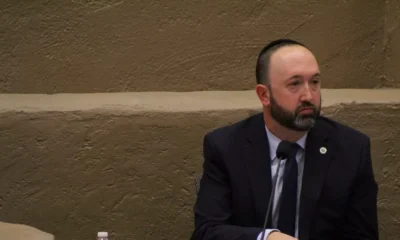crime
Leonard Peltier’s Clemency: A New Chapter Begins as Biden Exits Office

In a significant move, President Joe Biden has commuted the life sentence of activist Leonard Peltier, who has spent nearly half a century in prison. Peltier was convicted in relation to the 1975 shooting deaths of two federal agents during a tense standoff at Pine Ridge. The White House announced that Peltier will now be allowed to spend the remainder of his life in home confinement due to his advanced age and deteriorating health.
The announcement highlighted Peltier’s age—he is now 80—and the severe health issues that have plagued him for years. “The president is commuting the life sentence imposed on Leonard Peltier so that he serves the remainder of his sentence in home confinement,” stated the White House. This decision comes after years of advocacy for his release, which had been sought by various groups and lawmakers.
Immediately following the announcement, a quote from Peltier surfaced, expressing his relief: “It’s finally over – I’m going home. I want to show the world I’m a good person with a good heart.” Senator Brian Schatz from Hawaii, a long-time advocate for Peltier, praised Biden’s decision, calling it an act of compassion for an aging man in poor health.
Schatz emphasized, “If there were ever a case that merited compassionate release, Leonard Peltier’s was it,” acknowledging the issues surrounding Peltier’s original conviction. He expressed gratitude to Biden and the advocates who tirelessly campaigned for Peltier’s clemency. Prior to this, Peltier had been repeatedly denied parole and clemency requests, so the president’s action was a pivotal moment for many.
Nick Tilsen, founder of NDN Collective and a prominent advocate for Peltier, remarked on the significance of this moment: “Leonard Peltier’s freedom is the result of 50 years of intergenerational resistance, organizing, and advocacy.” He viewed Peltier’s release as a collective victory, stating that it symbolizes a larger struggle for justice among Indigenous peoples.
While many praised the decision, some remain critical of Peltier’s involvement in the events leading to his conviction, particularly regarding the American Indian Movement during the Wounded Knee era. The Assembly of First Nations recently withdrew its long-standing support for Peltier due to concerns about his alleged role in further violence against Native individuals, notably the murder of Anna Mae Pictou Aquash, a claim Peltier has consistently denied.
Peltier was not convicted of murder in the FBI agents’ deaths, but he was found guilty of aiding and abetting, along with a separate charge for attempting to escape. Senator Schatz has previously pointed out violations of Peltier’s constitutional rights during his trial, adding to the controversy surrounding his imprisonment.
In response to Biden’s decision, Native organizations across the nation celebrated, viewing it as a long-overdue acknowledgment of historical injustices. Kirk Francis, president of United South and Eastern Tribes, highlighted the compassionate nature of the decision, stating it provides a measure of healing for Peltier and his family.
Attorney Kevin Sharp, who had advocated for Peltier’s clemency, praised Biden’s decision as a step toward healing relationships between Native Americans and the U.S. government. “It took nearly 50 years to acknowledge the injustice of Leonard Peltier’s conviction,” he stated, emphasizing the significance of this act of mercy as Peltier prepares to return to his reservation after decades of captivity.


















